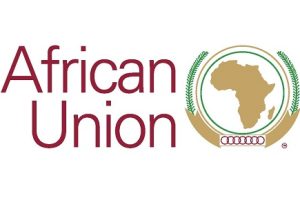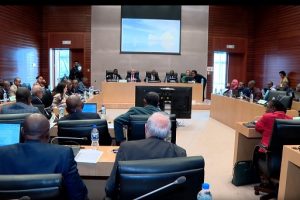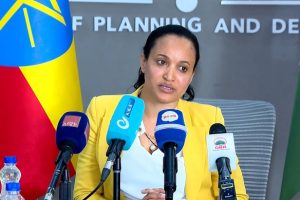BY DARGIE KAHSAY
With the request of Egypt and Sudan, the United Nations Security Council (UNSC) is expected to meet tomorrow to discuss on Ethiopia’s national dam, the Grand Ethiopian Renaissance Dam (GERD) negotiation between Ethiopia, Sudan and Egypt, Reuters reported citing French U.N. Ambassador Nicolas de Riviere said on Thursday.
Ambassador De Riviere, council president for July, pointed out that there was little the Security Council could do other than bring the parties together to express their concerns and then encourage them to return to negotiations to reach a solution, Reuters reported. This statement of De Riviere indicated that the only solution for the dispute on GERD the agreement of the three countries.
Ethiopia believes the solution is in the hands of the three countries good will to reach a win-win and final negotiation to use the waters of Nile, which is the shared resource of the countries though the downstream countries are still fighting to maintain the colonial era forged documents to remain the only owners of Nile.
During the past 10 years, the three countries have held many discussions to reach consensus on the Ethiopian dam. After ups and downs, the three countries signed the Declarations of Principles (DoP) in 2015 to be guided by during their discussions. According to Article 10 of the 2015 DoP, “the three countries commit to settle any disputes resulting from the interpretation or application of the declaration of principles through talks or negotiations based on good will principle.”
According to this article “if the parties involved do not succeed in solving the dispute through talks or negotiations, they can ask for mediation or refer the matter to their heads of states or prime ministers.” Following the failure to reach an agreement mainly due to Egypt’s rigid stance, the three countries agreed to be mediated by the African Union in 2020. Though Ethiopia was ready to reach a final and win-win agreement without any third party involvement, the issue went to the African Union and Ethiopia accepted AU-lead negotiation with goodwill as it is committed to reach a win-win agreement. AU-lead negotiation brought fruitful results and solved a lot of critical differences in this regard, until it was interrupted by the downstream countries.
Still now, Ethiopia is ready and calling the other parties to continue the African Union led negotiation though the two downstream countries are continued becoming the challenges for the discussion. Ethiopia believes on African solutions for African problems and rejects any mediator outside of AU.
Though the downstream countries are referring the issue to UNSC, the French ambassador to the UN says the Security Council could do little more than bring the parties together to discuss concerns and to encourage them to return to negotiations. He said that “I don’t think the council can do more than that.”
This remark respects AU’s role to solve African problems within the context of Africa and encourages continuing under the discussion under AU umbrella. This is unwavering stance of Ethiopia as Ethiopia’s stance is to reach a win-win final agreement under the AU negotiation and Ethiopia strongly believes on “African solutions for African problems.”
During his discussion with Aljazeera Inside Story, Mohammed Girma, Visiting Lecturer, University of Roehampton and Horn Africa Political Researcher said that “There is no compelling reason for the UN Security Council to inject or impose themselves on GERD issue.AU is coming off age in mediating & solving African problems.”
According to Mohammed AU is matured in mediating and solving African problems. So, Ethiopia thinks there is no need of UNSC or any non-African agency at this movement to inject themselves or to impose themselves on GERD issue. “Both Egypt and Ethiopia allocated in Africa and share the Union,” he said.
The case is already at the hand of African Union and if the negotiating parties are ready to solve their differences with good-will, AU is strong enough to solve the problem, he argued. So that AU should be given the chance in order to be able to mediate the problem that is good for the African identity, similarly very important for the African leaders to come-up with African solutions.
“As far as Ethiopian position is concerned, the Ethiopian government has mentioned that the project does not harm the other countries sharing the Nile including the Egypt,” Mohammed stated. So, Ethiopia as a country produces more than 85 per cent of the Nile water, has full right to use the water towards its development.
Hence, for Mohammed if the downstream countries are ready to reach a final and win-win agreement, first of all they should recognize Ethiopia’s right of using its resources without significant harm on the other countries sharing the water. GERD is a developmental project and is not a security threat for any country or region, hence, it is impossible to become an agenda of UNSC, he added.
The call of downstream countries to involve mediators outside of AU or referring the issue to UNSC doesn’t bring any positive outcome, they themselves also know it. The agenda of referring GERD to UNSC or calling mediators outside AU is only to make the GERD an international issue though it is a national development project to benefit millions of Ethiopians who do not have access to electricity.
According to Mohammed any kind of roadmap that could be drowned depends on the political will from the three countries only. Withdrawing the issue from AU or any military comment by downstream countries will not bring any outcome in this regard; the three countries should be wise enough to avoid any kind of belligerent acts. “They would get nothing through disagreement or any military intervention something that they don’t get through negotiation, it is time to be smart for the negotiating countries” he stated.
The only solution to solve GERD differences is only openness to reach a final agreement with give and take rather than stretching the argument and stretching the conversation to different kind of extreme yields. The solution is on the hand of the three countries, the only remained problem in this regard is lack of commitment by the downstream countries, for Mohammed.
From the beginning, Ethiopia’s keeps up its unwavering stance of win-win approach to use the Nile waters. Now, the international community understands Ethiopia’s stance is the only solution to reach final agreement. Many countries and international organizations are calling the countries to continue their discussions than stretching the issue. This week’s UNSC statement also assured that GERD’s solution is on the hand of the three countries and the only mechanism to reach a final agreement is continuing the negotiation with good will.
The African Union is also ready to continue the already started negotiation under its umbrella and calling the three countries to resume talks. Ethiopia accepted AU’s call and announced its commitment to continue the negotiation, but, the downstream countries are still continued to disturb the AU lead discussion by calling once to Arab League to take stance on GERD or referring the issue to UNSC.
During the 5th round 6th year 4th extraordinary session of the House of Peoples Representatives (HPR) on Monday, Prime Minister Abiy Ahmed stated that GERD is a developmental project constructing without harming the downstream countries. He added that “we have no any intention to harm our brothers and sisters; our goal is to use our resource for our development without harming the countries that share the Nile waters.”
Prime Minister Abiy assured that Ethiopia is ready to continue negotiating with the parties since it understands their concerns.
On Sunday, Minister of Water, Irrigation and Energy, Dr. Seleshi Bekele said the construction of the Grand Renaissance Dam (GERD) is progressing as planned based on schedule while visiting the project.
The Ethiopian Herald July 7/2021





